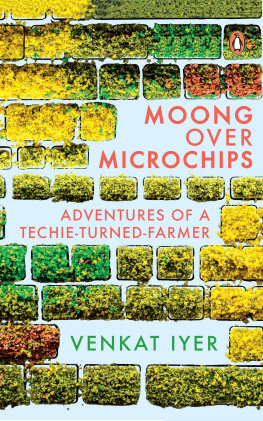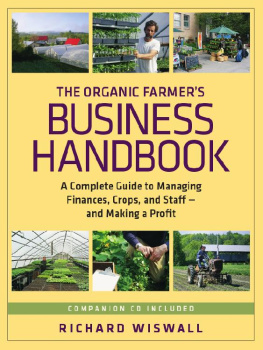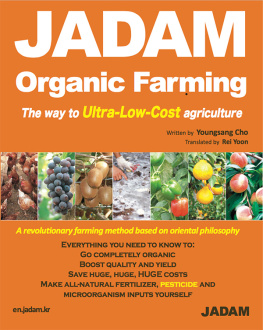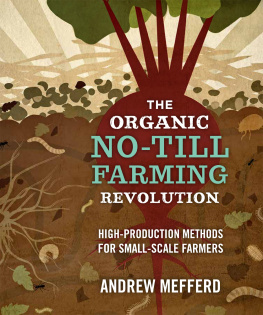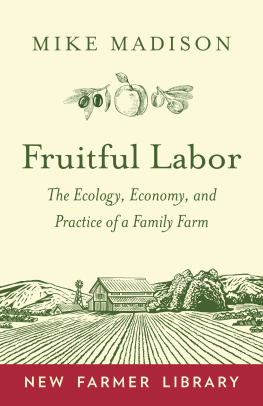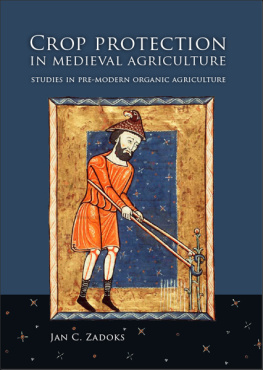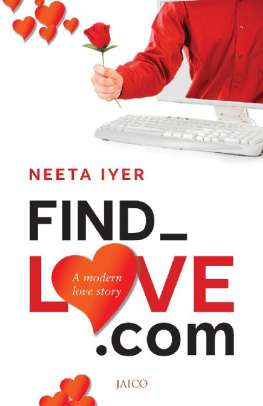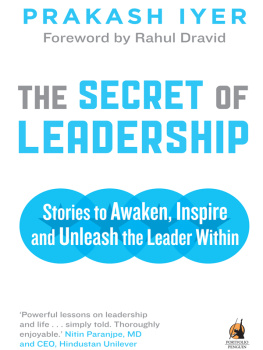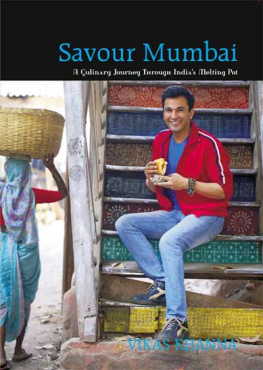it is still a beautiful world.
Be cheerful.
Strive to be happy.
Man cannot discover new oceans unless he has the courage to lose sight of the shore.
There seem to be but three ways for a nation to acquire wealth. The first is by war, as the Romans did, in plundering their conquered neighbours. This is robbery. The second by commerce, which is generally cheating. The third by agriculture, the only honest way, wherein man receives a real increase of the seed thrown into the ground, in a kind of continual miracle, wrought by the hand of God in his favour, as a reward for his innocent life and his virtuous industry.
Preface
I quit my corporate job as a project manager with IBM in 2003, after working for fifteen years in the Information Technology (IT) industry. It was not a career change but a change in lifestyle that I was looking for. I was tired of the vicious rat race in the city, the pollution, the traffic and the chaos in everyday life. I was frustrated by the mechanical and insensitive city life and the blinkered or complete focus on earning more and more money.
I changed my life to become a farmer, which was unthinkable for me until a few years ago. It was not smooth sailing. I was a complete novice in this field, never having lived for even a single day in a village. It was a challenge to make the transition from the city to the village. Farming was a new skill that I had to learn from scratch, and unlike software or hardware there were no manuals or help buttons to guide me along. I had to learn the hard way by experimenting and trying out new things.
When I quit my job, a few friends at IBM wished to be in touch and stay updated about what was going on in my life. I started sending fortnightly email updates to them. What started as a small group soon grew to include relatives, acquaintances and more friends. I wrote to them in detail about how I was managing the transition and trying to break away from city life while learning different skills and a brand new profession. My narration always evoked sympathetic responses and stirred the emotions of my readers. Many of them were still in the corporate sector and deep within them, they had the desire to break away and do something more exciting.
In this era of globalization and a money economy, there are few who will give up the chase for big bucks. This is the time when hundreds are migrating from the villages to the cities looking for elusive jobs and secure incomes. I felt rather alienated by this rat race and isolated too in my attempt to give it all up and try and eke out a simple existence by farming. Some of my friends suggested that I should collate my experiences and make them into some sort of a book which people could read and enjoy. They were of the opinion that it would make for interesting reading and may prove to be an inspiration for many others who were on the threshold of such a reverse migration.
At first I was extremely sceptical about this idea. I had never written more than a few words at a time, usually letters to my cousins as a child, or later, emails which were work related. A book was the last thing on my mind.
The driving force behind the book is my wife, Meena, who encouraged me and gave me the confidence to start writing down my experiences and feelings as I went about this transformation. During the monsoon in 2005, when I had some spare time as the work at the farm was not much, I decided to start writing.
I am thankful to Meena for having guided me in my first attempt to write a book. I would also like to acknowledge the tremendous encouragement from all my IBM colleagues and friends on the email list who inspired me to do this.
1
Where Am I Headed?
To Leave or Not to Leave
It was nearing six in the evening. I stared out of the blue tinted glass windows of my plush office at Bandra Kurla Complex, Mumbai, and watched the sun dip into the western sky. It was time to start the long journey back home through the rush hour traffic. Just as I was about to press the Turn Off button on my IBM ThinkPad, Sriram, my senior colleague, tapped me on the shoulder and asked if I was in a hurry to leave.
Sriram is a soft-spoken, easy-going man who had been my boss for many years before he took on a different role in the organization. Years of working with him had taught me that he rarely asked a question without a reason. I quickly replied that I was not in a hurry and asked if there was anything I could do for him. He said, There is a conference call I would like you to attend at 20.00 hours. We can leave after that.
This meant only one thing in IBM. It had to be a call from the Americans. Our head office was in the USA and due to the time difference, these conference calls were scheduled late night or in the early hours of the morning. We jokingly referred to them as con calls. Of course, if Sriram was asking me to attend, it had to be something important.
I called my wife, Meena, at home and told her that I would be late again. Meena, then a freelance journalist, worked from home. She also did various projects and research work which took her into the remote villages of India. She was at that time working on a book on organic cotton. She had just returned from one of her trips in the morning and we had hardly met before I left for work. We had planned a quiet dinner at home but now that would have to wait.
I had two hours to kill before the call, so I grabbed a cup of coffee and went to the open space on the first floor to gape at the sunset and get some fresh air. If the con call meant a project offer, I would have to take a decision soon.
My cell phone rang suddenly, stirring me from my thoughts. It was Sriram trying to trace me. I rushed back to the conference room where he gave me a brief on the call we were to attend.
IBM was undertaking a conversion project with a third-party vendor in India and there was a huge budget earmarked for the exercise. The project was to be controlled out of the head office in USA and a lot of global attention was focused on its success. After screening many potential candidates within the organization, I had been selected to head the project for IBM, based in Mumbai. It was a tough project and they needed the best hands to handle it. The call that day was to introduce me to the team so that I would be part of the process right from the start of the project.
After a two-hour call where I was introduced to the team and also the entire project and its finer details, we left for our homes. I had reams of documents to read and understand before I got the hang of the entire project and its nuances.

